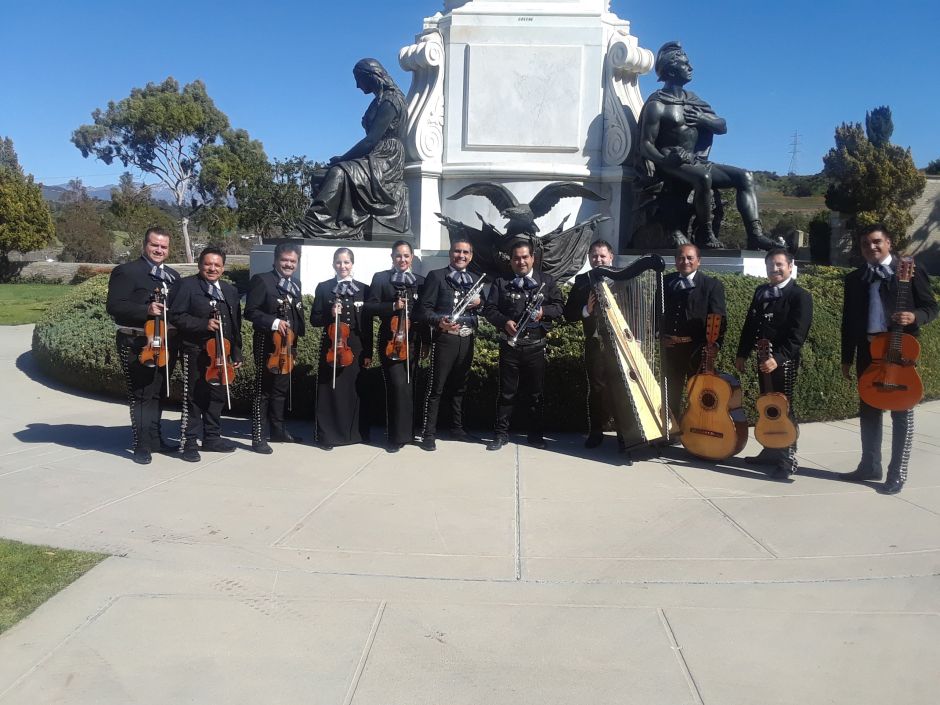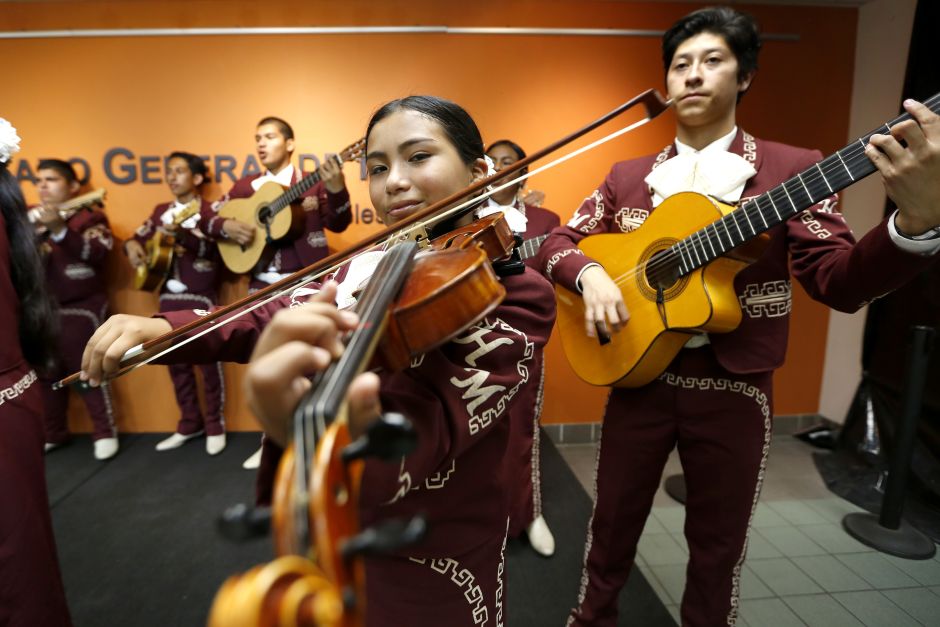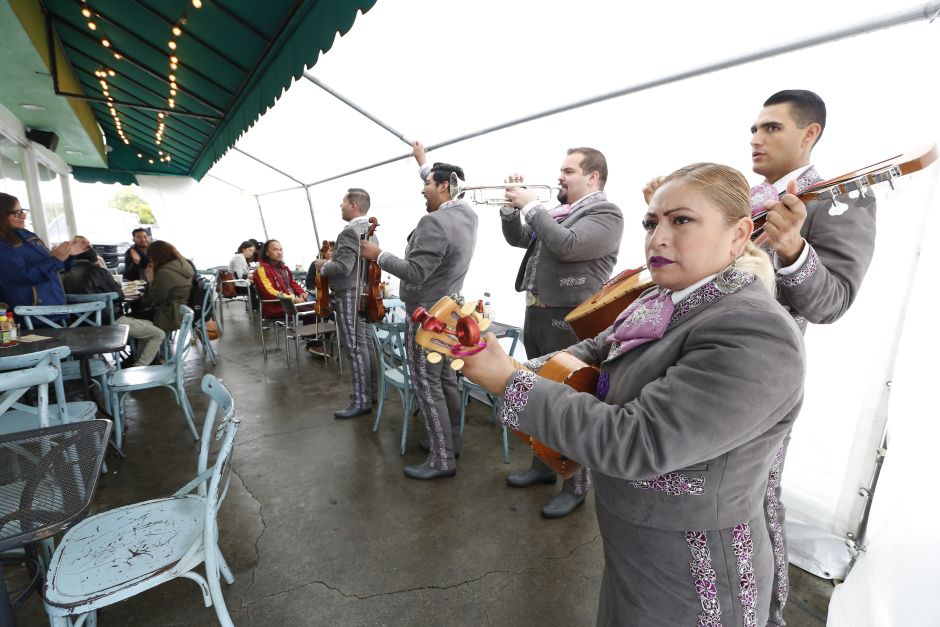Authorities urged to give them financial relief to deal with quarantine
The dozens of mariachis in the traditional Plaza El Mariachi in the Boyle Heights neighborhood of Los Angeles have been left unoccupied by the coronavirus and without the means to survive during the quarantine imposed to stop the spread of the pandemic.
The outlook for these musicians is looming even more traumatic as Los Angeles County has extended the order. "Stay at home”Until May 15, which means that they will not be able to work until that date.
It all started when on March 4, California Governor Gavin Newsom declared the state's coronavirus emergency. On March 19, he issued the order "Stay at Home," which in the case of Los Angeles, orders Angelenos to stay at home, except to carry out the most essential activities such as buying food and attending to health needs. Those who do not comply, at least in the city of Los Angeles, will be subject to minor crimes that can result in fines and jail.
Pandemic restrictions included closing all public spaces, mass congregations, and a six-foot social distance.
"It is for the 'scrub.' We have not worked for four weeks. We have canceled all scheduled shows. We can't find the door to pay the biles – accounts -. We are on bread and water ”, says Javier Chora, trumpeter from the Mariachi Jocotepec, whose members gather at Plaza El Mariachi to go to work.

It is estimated that 40 to 50 groups operate in Plaza El Mariachi alone, but throughout Los Angeles County, mariachis number in the hundreds. Each group has between five and six members.
Javier, who has been dedicated to playing mariachi for 32 years, assures that they are very concerned that the quarantine is going to be extended for another few weeks, meanwhile, they have no one to turn to for support.
"We are asking God to end this soon. We want the government to help the musicians. We do not have the funds or the resources to endure that long without working. What are we going to do? The food runs out. Imagine what awaits us with everything standing still. The phones don't ring to call us at any party, ”he says.
Due to lack of income, he called the phone company that provides the service for his cell phone. He informed them that he had no money to pay them and asked for a deadline. "They told me that they only gave me ten days of extension so as not to cut the service, but that at least I had to pay ten dollars," he says.

Before the coronavirus, work was not lacking: From Friday to Sunday, weddings, parties, baptisms, quinceañeras and birthdays; and during the week, mornings, serenades and funerals.
Javier sends money to his wife and 13-year-old son who live in Mexico. “She owns an aesthetic in Jocotepec, Jalisco, Mexico, but they also closed it because of the coronavirus. So we are both out of a job. ”
To top it off, the brother with whom he lives in Los Angeles, is unemployed and without income because like him he is also a mariachi. Between the two of them, they pay the rent for the house they share.
"The owner of the place where we live, is a relative, and promised to wait for us with the rent," he talks.
The musician confesses that they have had to humiliate themselves by borrowing to survive. "But it's more humiliating when they say no."
Mariachis do not qualify to claim federal unemployment benefit, because they are considered as micro-companies. This being the case, his situation is quite complicated with all the rules imposed to curb the COVID-19. In addition, as the quarantine is extended to May 15, they will miss two very important holidays in which they could have recovered from the economic impact, May 5 and May 10, Mother's Day.
"We cannot play instruments with masks and gloves; and all parties have been suspended because meetings of more than ten people are prohibited, "he says. If you want to donate to Mariachi Jocotepec, call 323-356-2219.

Financially devastated
Israel Moreno from Mariachi Alegría Michoacán says they are very bad because the pandemic has caused all the events they were going to play to be canceled.
"We want to protest to send Mayor Eric Garcetti a message, and ask him to give us financial support”Says Israel, who plays the violin at the Mariachi Alegría Michoacán.
"For those of us who do not have papers and are in the process of fixing our immigration status, it is much more difficult. We have no right to anything, "he acknowledges.
Israel has a family of four children, two of them minors. He is the sole breadwinner in their home. "I'm going crazy. They don't let us work. Everything is closed. There is no one to touch. There is no money entry. There is no food to pay the rent and expenses. What little reserve we had, it's over"

Without a way out
José Cervantes Vargas, who runs two groups of mariachis, Mariachi Juvenil Latino and Mariachi Arriba México, affirms that they are without any money due to cancellations due to the coronavirus.
"We are frozen 'by shot'. We don't see any sidewalk where to go out. We have stayed on the street ”, says José with more than 30 years of mariachi, playing the guitar, the guitarrón and the vihuela.
He calls on Mayor Eric Garcetti to give them a donation and pantries to survive the quarantine.
And he reiterates that the little reserve of money that they had, was finished. “We are in the last stages. We go about borrowing from people with sacrifice and shame. Sometimes they tell us they don't have a loan and they give us five or ten dollars. ”
Saddened, José regrets that they, who are the ones who cheer people up with their mariachi music, do not find any way out of the economic crisis caused by the coronavirus. "How can we stay at home with peace of mind."
Ask those who want to donate to members of the Latino Youth Mariachis and Arriba Mexico, call 213-505-6238.

They ask for loans
Councilman José Huizar's office, to whose district Plaza El Mariachi belongs, responded through his spokeswoman Laura McKinney, that they have not been contacted by mariachis.
However, he recalled that the councilman has been working to help Angelenos during this time. So he voted to pass the ordinance that provides a moratorium on housing evictions, and thus no tenant who cannot pay the rent during this period of COVID-19, is evicted.
Any mariachi who contact his office, he said, will be referred to the mayor's small business relief fund to see if they qualify for that program.
Said fund for 11 million dollars, grants microloans of 5,000 to 20,000 dollars to cover working capital with zero percent interest for a period of six months to one year; and at an interest rate of 3% to 5% for up to five years.







